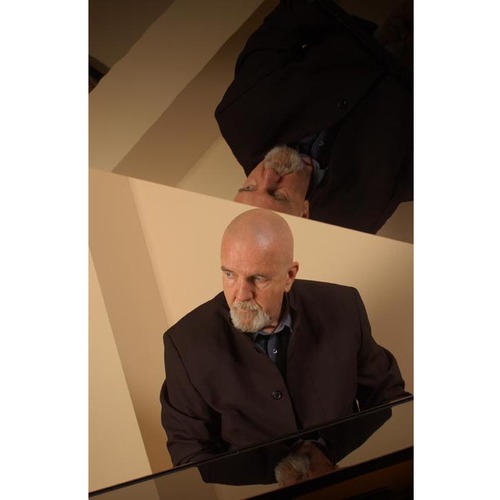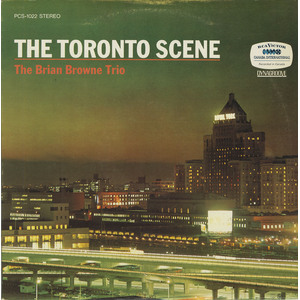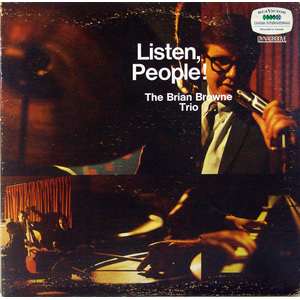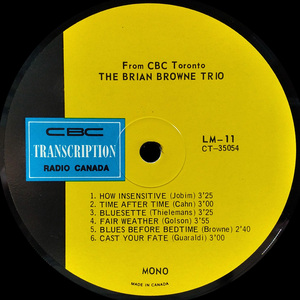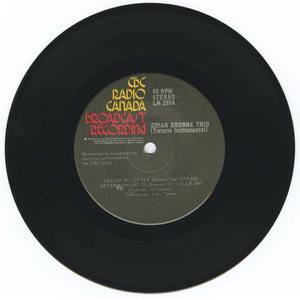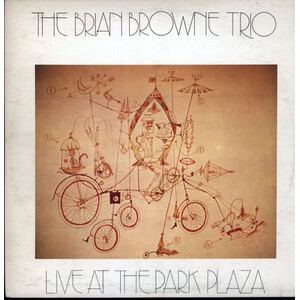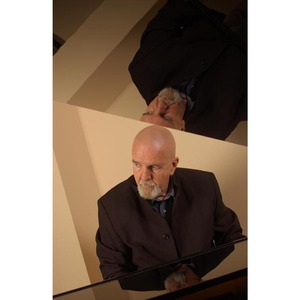Browne, Brian Trio
Websites:
http://www.brianbrowne.com/, https://www.facebook.com/brianbrownetrio/
Origin:
Montréal, Québec→Ottawa, Ontario, 🇨🇦
Biography:
Brian Browne Trio – Listen, People!
Brian Browne was born in Montréal on March 16, 1937, into a musical household shaped by his father Leo, an accomplished Irish fiddler. Music filled the Browne home, and young Brian gravitated to the piano. He was largely self-taught, learning by ear from the recordings of Art Tatum, George Shearing, and Oscar Peterson. By his teens he was already entertaining patients in hospitals and residents of seniors’ homes, developing a gift for making music personal and direct.
When the family relocated to Ottawa in the early 1950s, Browne’s education broadened. He graduated from Fisher Park High School in 1955, studied briefly in law at the University of Ottawa, then switched to music, realizing that composition and harmony were his true calling. He went on to Berklee in Boston and won a scholarship to Oscar Peterson’s Advanced School of Contemporary Music in Toronto, a formative experience that deepened both his technique and confidence.
In 1957 he formed the first Brian Browne Trio with bassist Sol Gunner and drummer Glenn Robb, playing Ottawa’s Beacon Arms Hotel and other clubs in the region. Selective about where he performed, Browne positioned himself squarely within serious jazz circles. He hosted a short-lived Ottawa radio show that caught the attention of CBC producer Peter Shaw, who transformed it into The Browne Beat, a weekly national program that helped make Browne a recognizable name.
By 1963 Browne had moved to Toronto, rebuilt his trio with bassist Skip Beckwith and drummer Donald Vickery, and quickly became a fixture on the Ontario club circuit. RCA Victor signed him in 1965, resulting in the trio’s debut LP, which mixed standards with Browne originals like “Browne Sugar” and “Blue Hair.” The album sold modestly but established him as a thoughtful arranger and inventive pianist.
The mid-1960s were a whirlwind. A second RCA album, Listen, People (1966), again paired covers with original compositions, while a Canadian Talent Library release showcased the trio alongside clarinetist Henry Cuesta. The group also issued singles for Quality and Academy Records in the U.S. and became fixtures on CBC programs such as Adventures in Rhythm, Nightcap, and Jazz Canada.
Personnel changes came and went—Vickery was succeeded by drummer Alex Lazaroff, then Bruce Philip—but Browne’s lyrical, harmonically rich piano style anchored the trio. In 1967 he recorded with the Douglas Randle Orchestra for CBC’s LM Series and later that year signed with Capitol Records. His witty turn on the 1969 CBC-TV special Jazz Piano—appearing with Erroll Garner, Bill Evans, and Marian McPartland—cemented his reputation. When he quipped, “If you play for people drinking cocktails, it’s called cocktail music. If you play for people who can’t afford cocktails, that’s jazz,” the line became part of his legend.
Capitol released Morning, Noon and Night-Time Too in 1969, featuring the original “Morning, Moon and Night-Time-Too,” which earned BMI Song of the Year when the album was reissued in 1974. Around the same time he collaborated with Anne Murray, recording on her early albums and appearing on her CBC television special.
Like many jazz musicians, Browne battled the grind of the business and personal demons. Alcohol and drug use shadowed the 1970s, slowing his career even as he kept performing and cut a live album, At the Park Plaza. In the mid-1980s he revived his career through CBC projects, including an album of Beatles interpretations, and a solo piano concert later issued decades afterward.
In 1989 he moved to New York City, stepping away from music to run a pool hall, then gradually found his way back to the piano, performing in clubs and finally kicking his drug habit. Returning to Ottawa in 1999 to care for his parents, he re-established himself as a central figure on the city’s jazz scene, recording CDs, teaching, and playing restaurants and clubs well into his seventies.
Brian Browne’s career was marked by brilliance, wit, and resilience. His playing combined the harmonic sophistication of his idols with a deeply personal touch that could move any audience, whether in a cocktail lounge, on national television, or in the intimacy of a trio setting. He passed away in 2018, remembered not just as a gifted pianist but as a musician who poured honesty and humour into every performance.
-Robert Williston
